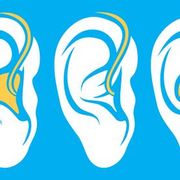How Does Hearing Loss Affect Balance?

The ears process sounds and help enable balance. Hearing loss can range from minor to downright debilitating, negatively impacting daily life for those who experience it. To provide some helpful insight into the connection between hearing loss and balance, here’s a guide to explain how they work together.
How Does Hearing Loss Compromise Balance?
 The ears process sound signals and deliver them to the brain, while also hosting the labyrinth in the vestibular system. In tandem with your sight, the labyrinth is largely responsible for balance and the orientation of your body in space. When someone experiences hearing loss, balance can be compromised, which might lead to a more serious disorder.
The ears process sound signals and deliver them to the brain, while also hosting the labyrinth in the vestibular system. In tandem with your sight, the labyrinth is largely responsible for balance and the orientation of your body in space. When someone experiences hearing loss, balance can be compromised, which might lead to a more serious disorder.
What Are the Signs of a Problem With the Vestibular System?
Hearing loss doesn’t directly cause balance disorders; however, it can point to an underlying condition that is the cause of a disorder that disrupts the vestibular system. Common symptoms that might occur in tandem with a loss of hearing include vertigo, dizziness, nausea, and a fluctuating heart rate or blood pressure.
How Should You Handle Hearing Loss?
To establish a proper diagnosis of a balance disorder, it’s essential to visit an ear, nose, and throat specialist or audiologist who will perform tests and determine whether or not the problem is in the ear itself. While the common symptoms can point to a hearing disorder, they can sometimes be the result of ear infections or an adverse reaction to a particular medication.
If you experience hearing loss or exhibit any of the symptoms mentioned above, don’t hesitate to reach out to Northwest Alabama Hearing Clinic in Hamilton. Their audiologist is licensed and has been providing patients with everything from audiometric testing and hearing aid repair to hearing loss treatment. To speak with an expert audiologist today, give them a call at (205) 952-9944, or visit their website for more information on their services.
About the Business
Have a question? Ask the experts!
Send your question

